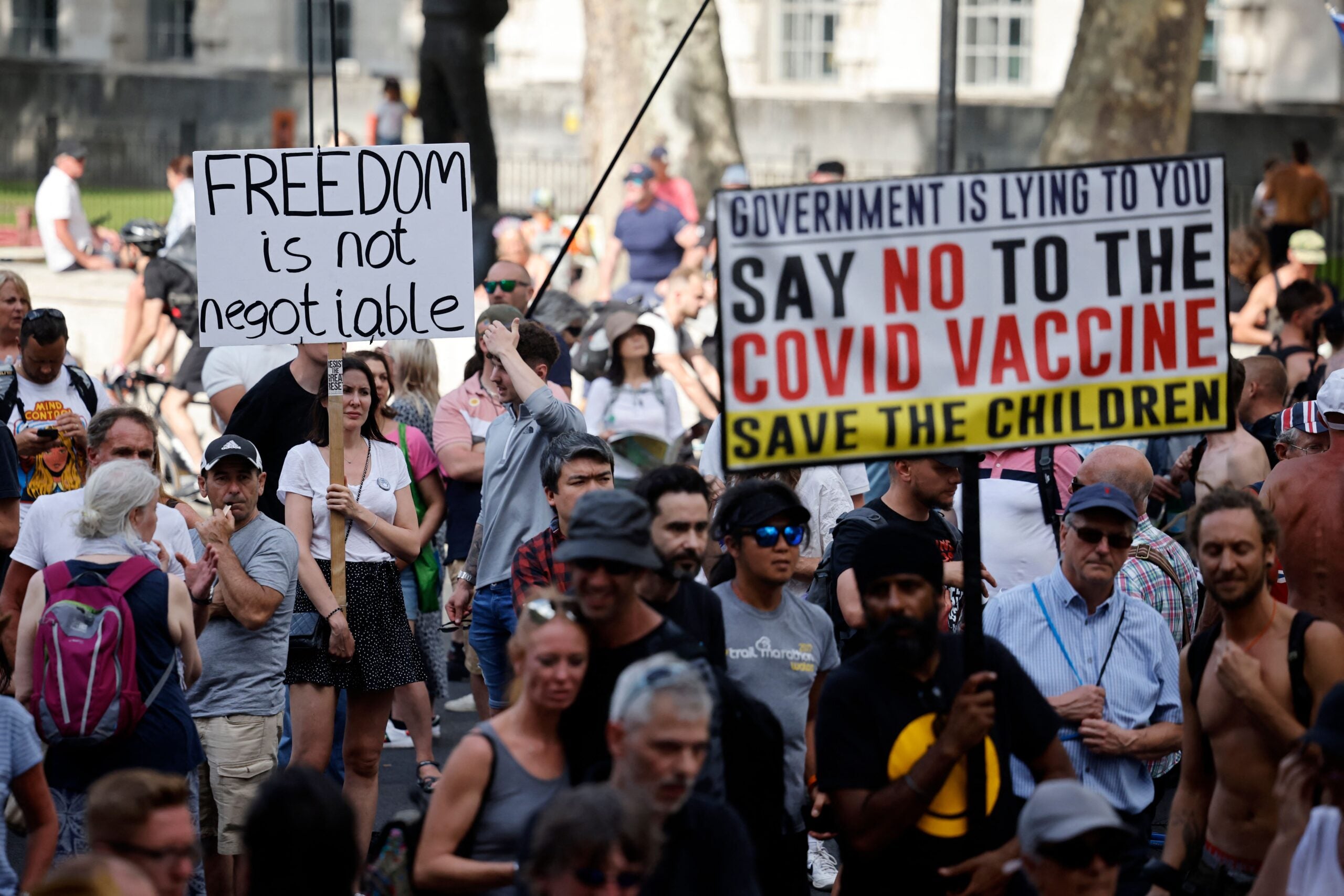
Newsletter platform Substack has been accused of profiting from Covid-19 misinformation but its founders insisted they “will defend free expression”.
A report by the Center for Countering Digital Hate published on Thursday claimed that five anti-vaccine newsletters are collectively earning millions of pounds through the platform.
The Center, which also runs Stop Funding Misinformation (formerly Stop Funding Fake News), called for Substack to “stop profiting from medical misinformation”.
The report focused on Joseph Mercola and Alex Berenson, both of whom have loudly disputed the efficacy of available vaccinations against Covid-19.
The CCDH estimated that the pair earn at least $2.2m (£1.6m) a year between them in revenue through Substack.
Mercola is the osteopath and alternative medicine advocate behind the influential natural health site Mercola.com. In May he announced his site would remove its content about unproven alternative treatments for Covid-19 to avoid social media bans but he has since begun publishing that content on Substack.
Berenson, previously a writer for The New York Times, was described in an April article in The Atlantic as “The Pandemic’s Wrongest Man” over his views on Covid-19 vaccines, which also saw him kicked off Twitter. His Substack, which is largely concerned with arguing against the efficacy of the vaccines, is the sixth-most followed newsletter in the platform’s politics category.
He posted on his Substack after the release of the CCDH report urging his readers to follow him on Telegram: “I trust Substack. Then again, I trusted Twitter.”
Substack does not provide exact subscriber numbers for its writers, instead more broadly disclosing that they have “thousands” or “tens of thousands” of followers.
The CCDH used this information and the writers’ subscription costs to estimate that Mercola and Berenson – each of whom, having “tens of thousands” of subscribers, presumably have at least 20,000 – are each making more than $1m a year in revenue through Substack.
The other three authors cited by the CCDH are tech entrepreneur Steven Kirsch, who claimed in his Substack this month that “the vaccines kill more far more [sic] people than they might save from COVID”; virologist Robert Malone, who wrote last month that the mRNA vaccines cause children’s bodies “to make toxic spike proteins”; and a pseudonymous author writing as “eugyppius”.
Malone denies on his website that he is an anti-vaxxer, but accuses the US government of taking “short cuts” over the development of Covid-19 vaccines, something numerous experts deny.
The latter three accounts have “thousands” of subscribers, according to Substack. The CCDH estimates that all five collectively pull in between $2.5m (£1.8m) and $12.5m (£9.3m) in revenue a year.
Substack has taken a hands-off approach to content moderation. Its content guidelines, while prohibiting anything “that promotes harmful or illegal activities”, do not contain any specific ban on publishing misinformation.
The approach has drawn some writers who have lost their platform elsewhere: Maajid Nawaz, for example, urged his listeners to follow him on his new Substack when he was suddenly removed from his LBC show this month following pushback on his tweets.
The platform takes a 10% cut of subscriber fees, meaning that if the CCDH’s estimates for the five writers’ revenues are correct, Substack receives between $250,000 (£180,000) and $1.25m (£930,000) annually for hosting their newsletters.
Asked by Press Gazette in December how she felt about Substack becoming a refuge for the deplatformed, the platform’s new UK partnership head Farrah Storr said: “It’s up to the readers to decide what they choose to read. We support freedom of the press – even for those who we don’t necessarily agree with.”
On Wednesday Substack’s founders Hamish McKenzie, Chris Best and Jairaj Sethi published an essay which said: “As we face growing pressure to censor content published on Substack that to some seems dubious or objectionable, our answer remains the same: we make decisions based on principles not PR, we will defend free expression, and we will stick to our hands-off approach to content moderation…
“Open discourse is better for writers and better for society”.
But the CCDH’s chief executive, Imran Ahmed, accused the Substack founders of hiding behind a false conceptualisation of free speech.
He told Press Gazette: “[The] defences that they use, that there is a vigorous free speech debate – where? No one can respond to an email to the same audience [as a Substack newsletter]. There’s no fact checking on the blog. It’s just: ‘I’m allowed to shovel out nonsense and further radicalise a selected group of people, with no way of anyone intervening in that process.’”
Ahmed disagreed that his organisation’s calls to remove anti-vaxxers from Substack harmed free speech.
“I always think this is strange that people claim that by making a First Amendment-protected moral judgement, and publishing that as the Center for Countering Digital Hate… we are somehow violating their First Amendment rights…
“It’s within my First Amendment right to free speech to ask them the question: how do you feel that you profit from death?
“The truth is that we have nothing, that we have no tools in society, beyond moral opprobrium.”
Asked whether the platform had any reservations about hosting the authors named by the CCDH, a Substack spokesperson referred Press Gazette to the founders’ blog post. The spokesperson also declined to confirm the CCDH’s estimate as to how much Mercola and Berenson make.
“Writers at Substack own their subscriber lists, and it’s not our place to comment on their specific subscriber numbers or income,” they said.
Mercola responded to a request for comment after publication, telling Press Gazette the CCDH is a “political brunch group” and asserting without evidence that Covid-19 vaccine injuries and deaths were being covered up.
Picture by Tolga Akmen / AFP via Getty Images
Email pged@pressgazette.co.uk to point out mistakes, provide story tips or send in a letter for publication on our "Letters Page" blog
